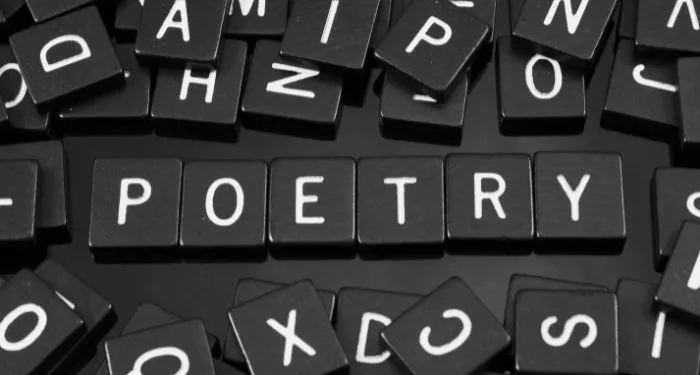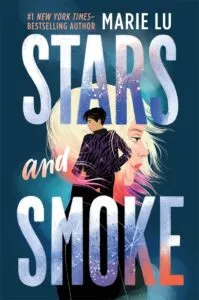
How Music Influences Poetry and Poets
When we think about music and poetry, song lyrics pull at our brains like gravity. Sometimes these lyrics are deep and full of vivid imagery like “Strange Fruit” by Billie Holiday, based on the poem by Abel Meeropol. Often, in music, the lyrics are lacking depth, but are still catchy and at least in rhyming couplets. Pick just about any Billboard Top 100 song, for instance.
The relationship between music and poetry goes both ways, though. Even more than musicians pull inspiration from poets, poets pull inspiration from everything around them, including music. Sometimes it’s a name-drop or leveraging a shared cultural touchstone. Sometimes it’s riffing on a musician’s lyrics. There are entire poetic forms based on music, too. Here are some ways in which music influences poetry and poets.
Poetic Forms
Blues and jazz are two genres of music very closely related to African American culture. Blues has a repetitive structure, focusing on melancholy stories, often of Black struggles in America. Jazz, on the other hand, is more improvisational and unstructured. Both of these genres have poetic forms based on them.
The Blues poem often follows a strict structure (though many good poems inevitably breaks their structure) and focuses on the same themes as Blues music: despair, sex, and struggle. Though, as Ralph Ellison said, there is also the drive to overcome “through sheer toughness of spirit.”
The form starts with a declaration in the first line, a variation of that declaration in the second line, and an ironic alternative in the third line. Numerous Black poets like Helene Johnson, Tyehimba Jess, and Kevin Young have written great Blues poems over the years. “The Weary Blues” by Langston Hughes is one of the most famous Blues poems that starts like this:
Droning a drowsy syncopated tune,
“The Weary Blues” by Langston Hughes
Rocking back and forth to a mellow croon,
I heard a Negro play.
Down on Lenox Avenue the other night
By the pale dull pallor of an old gas light
He did a lazy sway . . .
Jazz poetry, on the other hand, is as varied as the music it draws from. The poetry form emerged alongside the music genre in the early 20th century and really took off during the Harlem Renaissance. These poems are all about riffing, improvising, surprising, and playing with syncopated rhythms. Just read the opening lines of “Old Lem” by Sterling A. Brown:
I talked to old Lem
“Old Lem” by Sterling A. Brown
and old Lem said:
“They weigh the cotton
They store the corn
We only good enough
To work the rows;
Now read that again. Aloud. Feel the rhythm of it. Nothing like a Shakespearean sonnet, is it?
Music in Modern Poetry
More than poetic forms based on music, poets often pull from musicians in a variety of ways. The first is by directly referencing musicians by name or by referencing their lyrics. Why do this? Poetry reflects life. Popular musicians are very much part of the public zeitgeist and, therefore, part of life.
There’s an emotional shorthand that occurs when referencing a popular musician. If I name-drop Beyoncé, a certain image comes to mind, certain songs from her time with Destiny’s Child to her recent Grammy wins for Renaissance. If I mention Metallica, however, there’s a very different image of four white guys playing very heavy, fast music. In both cases, each person has their own emotional attachment to a particular artist. That attachment comes along for the ride when a poet mentions an artist.
Name drops can come in many forms, like a tribute in “Ode to Herb Kent” by Jamila Walsh or an essay in poetry like “ABBA” by Dennis Cooper. Mentioning a musician and their music can also capture the mood of an entire evening like in “Ode to Fetty Wap (written after strip club)” by Roya Marsh. Watch, too, for the bonus musical reference to “Sweet Caroline,” possibly the whitest, straightest song ever written. See how that song mentioned in an ode to Fetty Wap brings a different sort of energy, a contrast in musical form.
Other poems can pull inspiration from an entire genre without dropping a single name, like in “Hip-Hop Ghazal” (pronounced like “guzzle”) by Patricia Smith. Pick a musical genre. Pick a famous artist. You can likely find a poem mentioning them and pulling inspiration from them. Seriously. Just search for your favorite musician and “poem.” See what turns up.
Of course, the relationship between poetry and music makes sense. Poets are just people, after all. We’ve all been inspired by music in some way. Many novels, movies, and TV show episodes take their names from song titles. Songwriters reference, sample, and borrow from each other liberally. We all find comfort in music from time to time. Poets are no different, weaving their favorite songs into their art in any way they can.
- Sounds Like Revenge: A Very Vengeful Reading + Playlist
- On a Magical Note: Music Magic in Fantasy Books
- 15 Romances and the Earworms They’ll Inspire
- 8 Manga About Music and Musicians
- You Can Tell Everybody: 12 of the Best Memoirs by Musicians
- Cover-to-Cover Songs: 10 Nonfiction Books about a Single Song
- Are Lyrics Literature?
- These Books Rock: 10 YA Books About Musicians
- Their Favourite Songs: Books With Music Playlists









